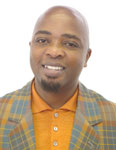
Top stories






More news


Marketing & Media
Ads are coming to AI. Does that really have to be such a bad thing?














George Orwell wrote in 1943 that "[w]e live in a time when political passions run high, channels of free expressions are dwindling, and organised lying exists on a scale never before known". The letter written by former president Thabo Mbeki to ANC president Jacob Zuma has not only caused a stir between the ANC and its disgruntled members, but confusion within millions of South Africans.
For now, I am not interested in knowing the intentions of the letter, who tells the full truth, half truth or lies about it, but on how information could be managed, manipulated and disseminated by experts to deceive, by distorting or exaggerating comparability in order to shape public perception and opinion. These experts are called spin doctors.
Paul Richards writes in his book, Be your own Spin Doctor that “[t]hroughout the history of human being, powerful, influential and wealthy people have had outspoken, informative, influential and trusty lieutenants to represent them, speak for them, present their thoughts, push the positive truth about them, protect them against conspiracy theorists, interpret their massages, and provide targeted publics with insight into their thinking and intent.”
Spin doctors claim that they exist because there is no such thing as objective truth. Facts, figures, events and words used by their masters to explain their values, visions, missions, policies, principles and programmes have different meanings to different people.
They are brilliant, cunning, controversial, colourful, influential and fanatical figures whose goal is to present interpretations and put a favourable bias or 'positive spin' on events, situations or campaigns in-order to persuade public trends, opinions and perceptions, and to assess potential public reaction.
They use a variety of tricks and techniques, as well as well-designed phrases and strategically-crafted tactics, to explain, educate, distract, deceive, deny, manipulate, mislead, attack truthful reports, scold journalists and, to some extent, take legal action against what they see as ‘defamatory' articles.
The rise of spin is a direct response to the growing battle for media coverage, market share of tabloid journalism, influence of communication and PR machinery's need to shape perceptions and public opinions and laziness of journalists. Spin doctors have become increasingly enthusiastic and effective in manipulating mass media in order to peddle their masters' viewpoints to the public. They use some of the most advanced PR and communications tactics to exploit the failings of the modern media and, as a result, have become very powerful and dangerous tools. While spin doctors understand how the media newsrooms operate and know how journalists select news - journalists tend not to understand the art and tactics of spin doctoring.
As a result, media gives them ample space to contaminate the information dissemination processes. The existence of a state-controlled media, private media's obsession for making profit, editors' and publishers' fear of offending advertisers, media subjectivity, lack of media principles, media passivity and laziness, and exodus of experienced and gifted journalists to government and business sectors constitute the main reasons that media is so easy to spin. The fact is that the power of spin-doctoring will be much reduced when it is subjected to close and constant scrutiny by journalists.
"Spin at a superficial level is fun; we all do it, we package things to suit an image of ourselves," says Malcolm Russell, MD of the Broadcast Development Group.
So does this make spin all good?
No.
Should the media and community be worried about the growing influence of spinning practices? And should PR practitioners try to disassociate themselves from the term spin doctor?
Yes.
Despite the skills involved, spin doctors are often cynical, ruthless and insensitive in their approach. I think that spin doctors should - in an ideal world - not have a place in a democratic society. Engaging spin doctors is an excellent way to send your public image into a long-term catastrophic loss of credibility. Good reputation, respect and credibility are earned over years of ethical and honest behavior where one is demonstrating trustworthiness, fairness and integrity at all times. And this task can be best performed by the PR professionals.
